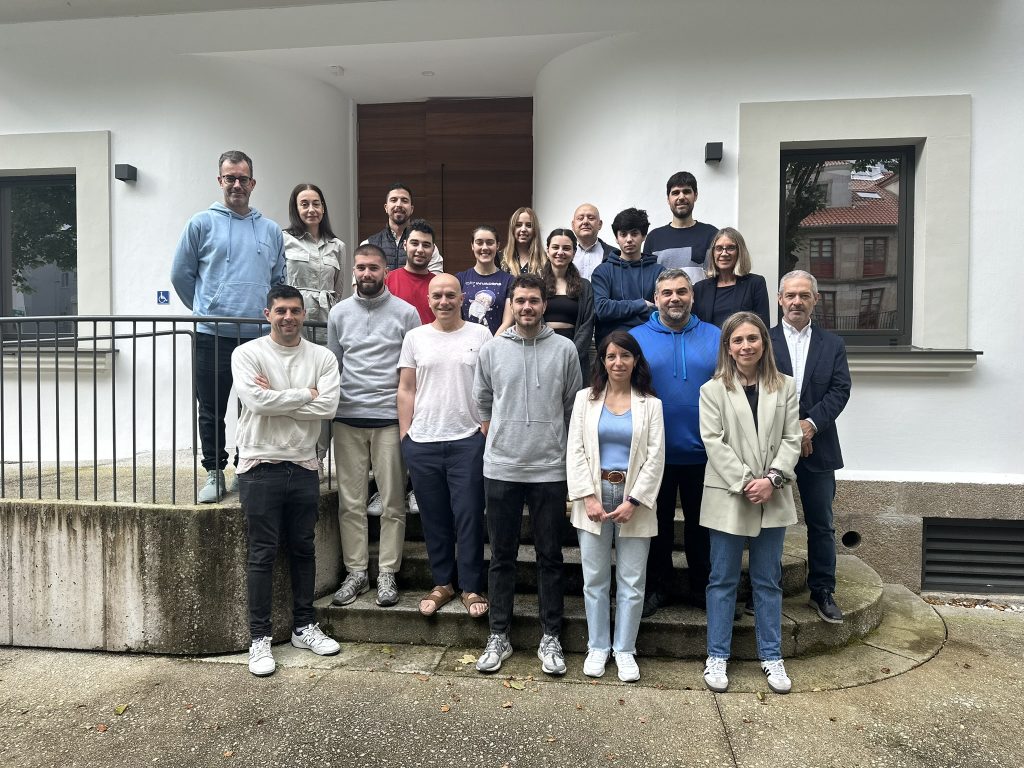
CITIC of the UDC participates in the European project on sustainable energy communities in the Atlantic to advance decarbonization.
The SAtComm project, active until the end of 2026, brings together 11 public and private entities from four countries: Spain, Ireland, Portugal, and France, and aims to define a transition model towards clean energy in Europe.
CITIC’s proposal includes modeling all elements of energy communities, as well as detecting possible anomalies for project correction and optimization.
A Coruña, August 30, 2024. Researchers José Luis Calvo Rolle and Héctor Quintián from the CITIC at the Universidade da Coruña are part of the European project on sustainable energy communities in the Atlantic (SAtComm), which has recently showcased its advancements in decarbonization. This Interreg project in the Atlantic region involves eleven public and private entities from four different countries (Spain, Ireland, Portugal, and France) and has a total budget of over three million euros, with the Universidade da Coruña contributing 405,000.01 euros.
Self-Managing Clean Energy
Energy Communities (CEs) are legal entities formed by partners who generate and consume their own renewable energy and have the option to sell the surplus to nearby customers. This allows citizens, from residential to industrial levels, to manage energy generation, demand, and storage efficiently, without resorting to intermediaries.
The SAtComm project, scheduled for completion in November 2026, focuses on defining an efficient and sustainable model for implementing these communities in Europe that also serves as a tool for transitioning to clean energy and decarbonizing our territory. An analysis has been conducted that includes regulatory aspects, proposals for predicting generation and demand, new energy management models, and even intelligent systems for detecting operational anomalies.
CITIC’s proposal aims to model all elements of the Energy Communities (CEs) using historical data, user profiles, and the types of loads that need to be supplied. These individual units will be integrated into a global model, allowing the emulation of the behavior of the different CEs analyzed. Furthermore, the CITIC research team seeks to identify and analyze potential failures or anomalies in the components of the CEs to anticipate problems and make informed management decisions, ensuring optimal operation during their lifespan.
Exportable Model
SAtComm aims to provide energy communities with the tools they need to take control of their energy and actively contribute to making our energy systems cleaner. New European Union regulations are making individual energy users more central to the shift towards cleaner energy. However, each EU country is adopting these rules in its own way, making it difficult for energy communities to have a significant impact on this transition.
SAtComm plans to analyze the regulations across the four regions of the Atlantic Area, create and use technologies that work for everyone, and ensure they are sustainable. This way, all types of energy users, from industries to households, will have the capacity to exchange energy directly among themselves, manage their usage intelligently, or store energy in batteries. The project is testing these technologies in rural and coastal areas of the four regions, and the conclusions will be shared so that other energy communities can use them as a guide to adopt similar smart energy concepts, thereby becoming an exportable model for other areas or regions.





